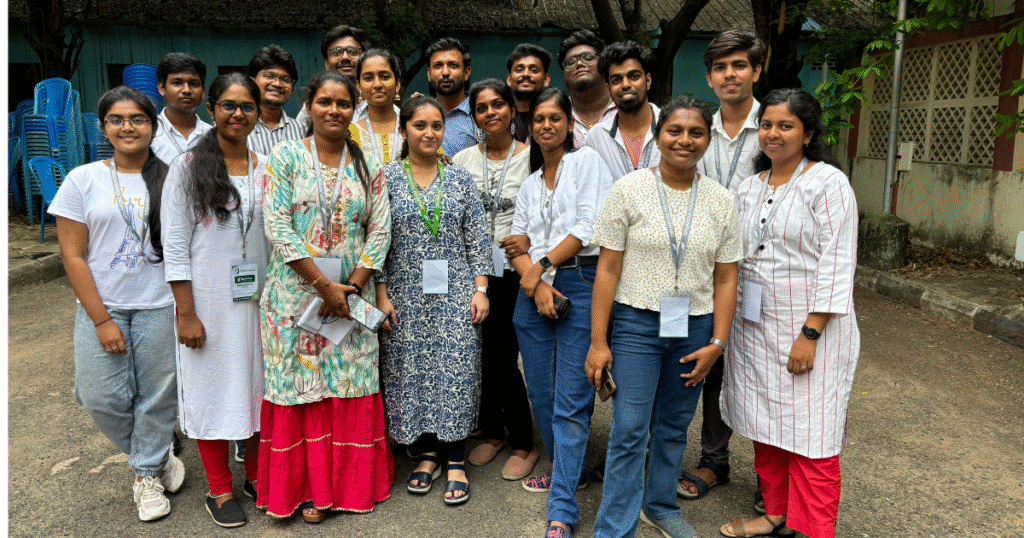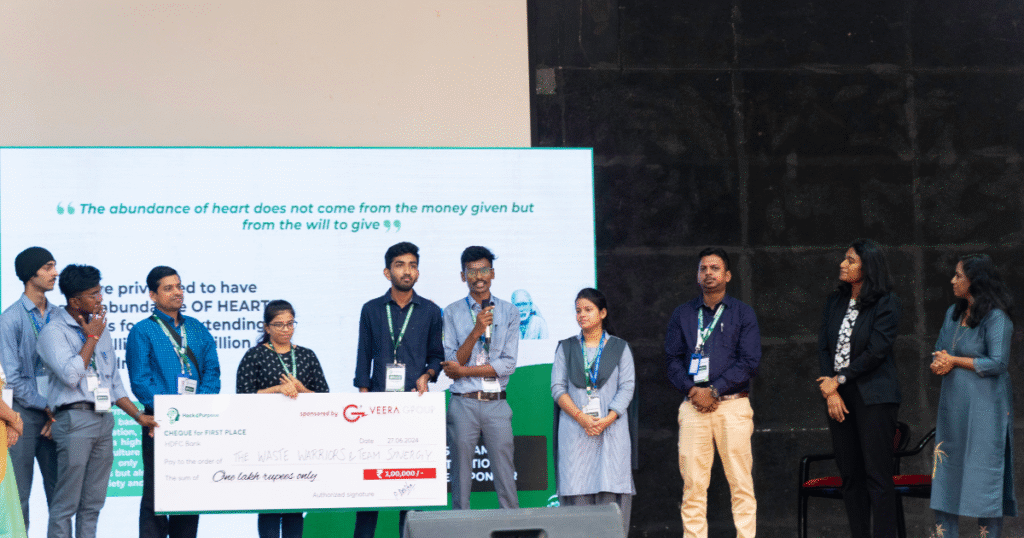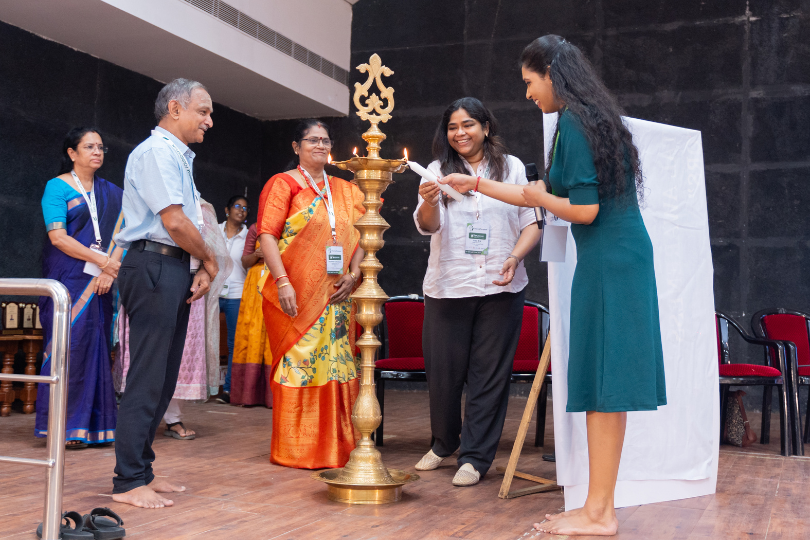In the last few years, Hackathon in India has evolved beyond a buzzword — it’s become a cultural phenomenon that’s revolutionizing how innovation gets ignited, how problems are being solved, and how talent gets discovered. Whether it’s college students coding through the night or corporations executing multi-city innovation campaigns, India’s hackathon ecosystem is thriving.
As the globe shifts towards quicker, nimbler problem-solving, hackathons are becoming the energy driving next-generation ideas, technologies, and livelihoods. Wondering how this trend germinated in India — and where it is headed? This detailed blog covers it all.
What Is a Hackathon?
A hackathon is a competition in the style of a sprint in which participants work together to develop solutions to actual problems. Organized over 24 to 72 hours, these events convene developers, designers, entrepreneurs, and domain specialists. The word “hack” simply means smart, innovative problem-solving — not hacking.
At an Indian hackathon, the structure typically consists of:
- A theme (example: fintech, health tech, edtech, climate)
- Problem statements
- Time-limited collaboration
- Final pitches or demo presentations
Participators brainstorm, prototype, test, and showcase solutions — frequently developing apps, tools, or systems that can be scaled up into actual products.
Why Hackathons Are Booming in India
India, with its huge youth base, best engineering colleges, startup explosion, and increasing emphasis on digital transformation, offers rich soil for hackathons.
Major Drivers of the Boom:
Tech Talent Pool: India graduates more than 1.5 million engineers every year. Hackathons are the natural breeding ground for such talent to flourish.
Startup Culture: With more than 100 unicorns and 90,000+ startups, there’s a pressing and continuous need for problem-solvers.
Government Support: Programs such as Startup India, Digital India, and Smart India Hackathon build national hackathon ecosystems.
Corporate Involvement: Indian and MNC companies leverage hackathons to crowdsource ideas, develop products, and recruit innovators.
In short, an Indian hackathon is not an event; it’s a critical component of the innovation pipeline.
Types of Hackathons in India
All hackathons are not created equal. Here’s how they’re classified in India:
- Student Hackathons
Organized typically by colleges or ed-tech platforms, these are about skilling and early innovation. Examples:
- Smart India Hackathon
- Hack4Purpose
- Codeutsava by NIT Raipur
- Corporate Hackathons
Organized by firms such as TCS, Infosys, or Flipkart, these are for internal innovation or finding external talent. - Social Impact Hackathons
Dedicated to addressing civic, environmental, or health issues. NGOs, local authorities, or UN-sponsored platforms organize these. - Startup Hackathons
Startups seeking MVPs (Minimum Viable Products) frequently organize or participate in hackathons to quickly prototype.
Popular Hackathons in India

There are some well-known hackathon in India that have received national and international recognition. Here’s a list of the most influential ones:
- Smart India Hackathon (SIH)
Supported by the Government of India
Education, transportation, and governance are themes.
More than 2 lakh participants from all over India
- TechGig Code Gladiators
Asia’s largest coding event
Strong focus on hardcore programming and tech problem-solving
- Hack4Purpose
One of India’s fastest-growing purpose-driven hackathons
Strong focus on sustainability, climate action, and social good
- Tata Crucible Hackathon
Targeted at B-schoolers and students of tech
Combines business innovation with technology
- AngelHack India
International hackathon series with Indian city chapters
Accelerator support for winners
Advantages of Attending a Hackathon in India
An hackathon in india promises more than a prize. Here are some genuine advantages for individuals and teams:
Real-World Learning
You get to use theoretical learnings to design real-world solutions under time constraints.
Career Boost
Many recruiters view hackathon experience as a big advantage. Some even hire directly.
Networking
Interact with developers, mentors, investors, and HR professionals at a single location.
Startup Incubation
Numerous successful startups — such as GitHub, GroupMe, and Zapier — started at hackathons.
Recognition and Funding
Successful teams get highlighted in the media and can get seed money or grants.
Who Can Attend an Indian Hackathon?
Anyone interested in solving problems, learning, or creating something new should attend. Typical participants include:
- Engineering students
- Software developers
- UI/UX designers
- Data scientists
- Business and marketing minds
- Social entrepreneurs
Most Indian hackathons are team-based, which encourages interdisciplinary collaboration.
How to Prepare for a Hackathon in India/

Assemble the Right Team
A good team should have:
- A coder
- A designer
- A domain expert
- A presenter/pitcher
Practice With Problem Statements
Check out previous hackathon questions and attempt to solve them with friends.
Improve Your Pitching
A good idea can perish if it’s not explained well. Practice pitching your solution within 3 minutes.
Familiarize Yourself With Prototyping Tools
Tools such as Figma, Flutter, Firebase, and GitHub find widespread usage.
Master the Skill of Working Fast
Time management is paramount — dedicate hours to ideation, design, development, and testing.
The Role of Hackathon in India’s Digital Future
As India emerges as a global tech leader, hackathons will be the driving force behind:
- Bridging education and industry
- Encouraging frugal innovation
- Supporting regional talent
- Advancing digital public infrastructure
- With digital public goods such as UPI, Aadhaar, and ONDC gaining so much attention, the next set of applications will be created at hackathons.
Why Companies to Host or Sponsor Hackathons in India
It makes business sense for companies to host or sponsor a hackathon in India. Here’s why:
Brand building: Become a forward-looking, innovation-acceptable brand.
Talent sourcing: Recruit and find top-notch problem solvers.
Product development: Experiment with new product concepts or enhancements in real-time.
CSR activities: Promote social cause hackathons to dovetail with sustainability objectives.
Future Trends for Hackathons in India
Hybrid and Virtual Models: Remote hackathons with live mentorship and demo days.
AI-Based Hackathons: Leveraging generative AI, ChatGPT, LLMs, and autonomous agents.
Sector-Specific Events: EdTech-only, AgriTech-only, or ClimateTech-only hackathons.
Women-Only Hackathons: Encouraging gender diversity in tech arenas.
School-Level Hackathons: Encouraging tech innovation even among students of Class 6–12.
The hackathon in India ecosystem is becoming deeper, more diverse, and internationally competitive.
Final Thoughts
A hackathon in India is no longer merely a coding activity — it’s an arena for learning, innovation, entrepreneurship, and social change. With proper support, vision, and implementation, hackathons can make India the innovation hub of the world.
Whether you are a student wanting to enter the tech industry, a business wanting to innovate, or a startup wanting to prototype, participating in or hosting a hackathon could be your best choice yet.







